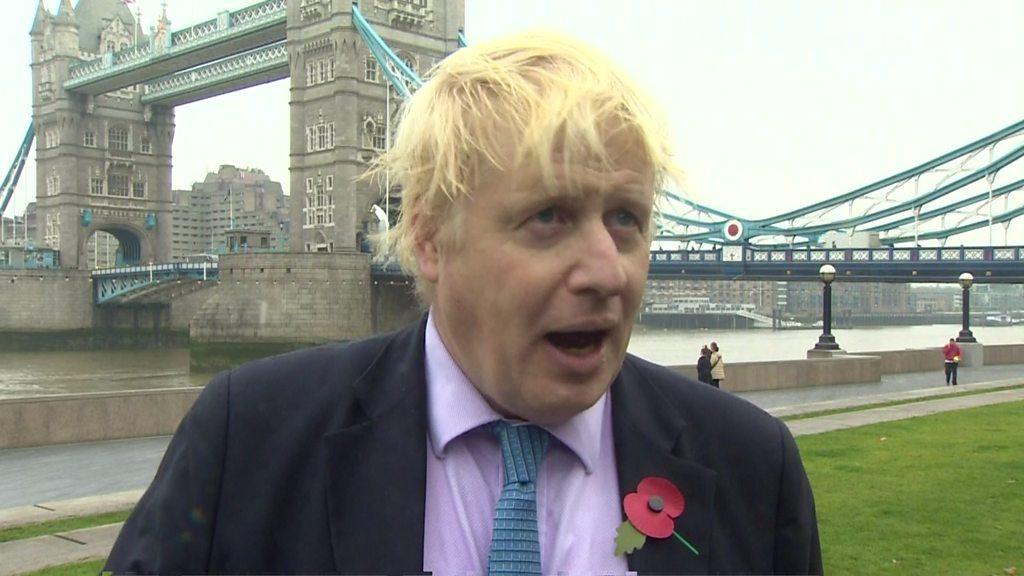Review into powers of Lords to be completed by Christmas
- Published
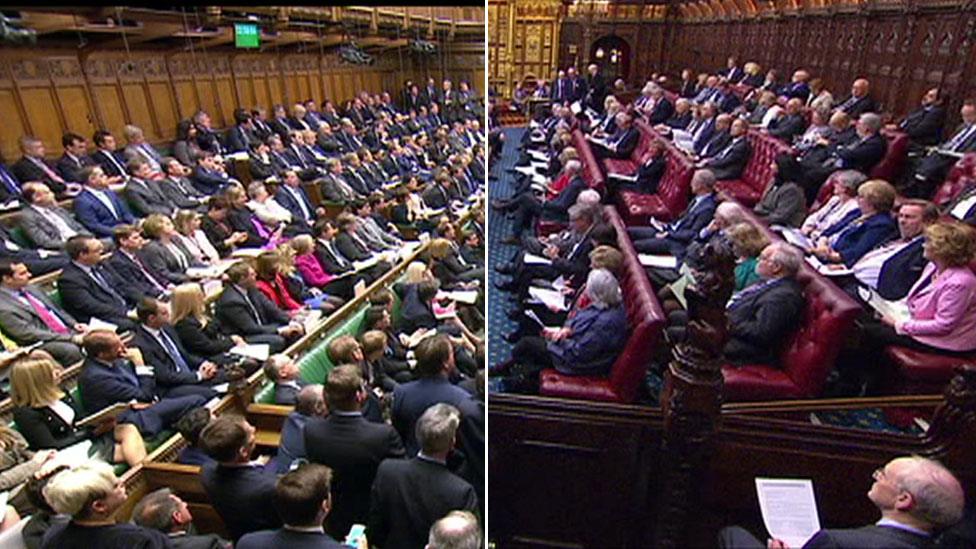
The House of Lords has not traditionally blocked financial legislation that has the backing of MPs
A review into the workings of Parliament triggered by government defeats in the House of Lords could be completed by Christmas.
Conservative peer Lord Strathclyde said he wanted to "give clarity" quickly to age-old conventions which had been "capriciously" breached by the Lords.
He appeared to rule out recommending the creation of lots more Tory peers.
Labour said it was a "pretend crisis" and ministers wanted to "give the Lords a kicking" for doing its job properly.
Ministers have accused peers, who are overwhelmingly appointed, of overreaching themselves by holding up and seeking major changes to tax credit cuts approved three times by elected MPs.
They have questioned the authority of the Lords to challenge the Commons on such a major financial issue, saying it flew in the face of long-standing historical precedents.
'Deplorable'
Lord Strathclyde, the former leader of the House of Lords who is leading the review, told the BBC that the Lords had the "power but not the authority" to challenge the Commons over the issue, suggesting they had behaved "deplorably".
"We have developed very good ways of the unelected House of Lords protesting at what the House of Commons does but backing down," he told BBC Radio 4's The World at One. "On Monday, gleefully and capriciously the House of Lords voted it down so as to kind of engineer this semi-crisis."
Among the options open to him, he said, was to recommend amending the 1911 Parliament Act, external, which asserted the Commons' supremacy over the Lords, to prevent the Lords from being able to vote down or amend secondary legislation.
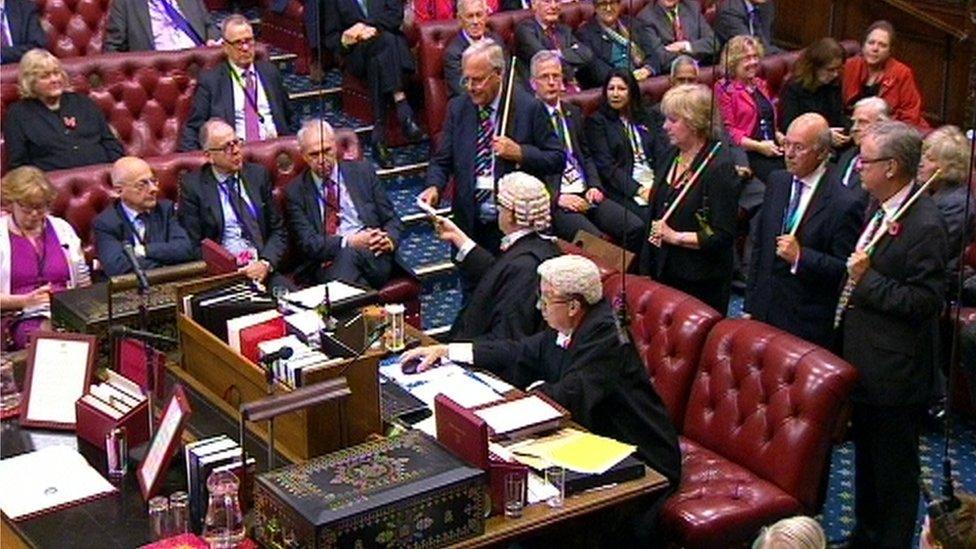
Some Conservative MPs have reacted angrily to the House of Lords' vote
However, he scotched the idea - put forward by some Tory MPs - that a large number of peers could be created to give the government the working majority in the Lords it currently lacks: "I think that would be the wrong thing to do. It is the wrong way to deal with this particular problem."
The Tory peer added that he would like to complete his review "by the end of the year, perhaps sooner if possible".
Senior figures in the House of Lords have urged the government not to "punish" it for defying the Commons. Ex-Lords Speaker Baroness Hayman said it had done "what it classically does" in asking the government to "think again".

Analysis by BBC political reporter Brian Wheeler
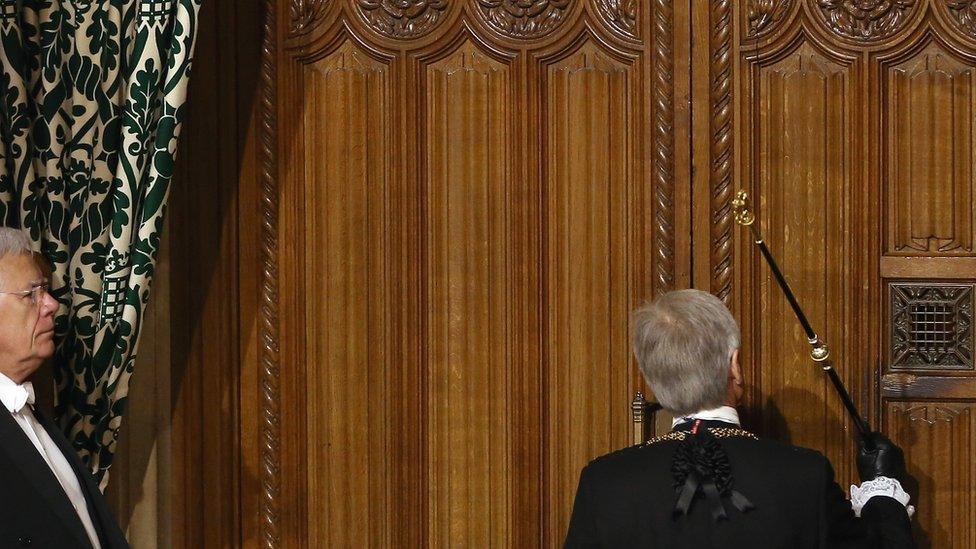
The House of Lords is not traditionally supposed to block financial legislation that has the backing of MPs.
This principle was established in 1911 during the constitutional gridlock that followed a decision by peers to block the Liberal Party's "people's budget".
But nothing is ever cut and dried in Britain's fluid, unwritten constitution. And both sides are angrily trading precedents and claiming that their opponents are overstepping the mark. If they could only agree where the mark is.

She pointed out Commons Speaker John Bercow had said there had been no "procedural impropriety".
Downing Street said the review would examine "how to protect the ability of elected governments to secure their business", considering "how to secure the decisive role of the elected Commons in relation to its primacy on financial matters and secondary legislation".
'Pretend crisis'
But Labour is seeking more details about the review's terms of reference and who Lord Strathclyde will be consulting.
"It is clear that the government intends to give the House of Lords a kicking," said shadow Commons leader Chris Bryant.
"But it should remember, I think, as it fashions this pretend constitutional crisis that the vast majority of people in this country applauded the Lords on Monday because this was not in the government's manifesto."
The government has suffered 19 defeats in the Lords since May.
Critics say that it has mishandled the presentation of its tax credits policy and sought to enact the changes through a statutory instrument rather than a money bill, which the Lords cannot challenge, to restrict debate.
Before Monday's defeat, peers had only blocked so-called secondary legislation on five occasions since 1945 and never on a financial matter.
Under the motion passed by peers, the government would have to compensate people losing out from the £4.4bn cuts to tax credit payments.
In response, Chancellor George Osborne said he would listen to people's concerns and announce any modifications in next month's Autumn Statement but insisted he would press on with changes designed to save billions from welfare, claiming they had public support.
- Published27 October 2015
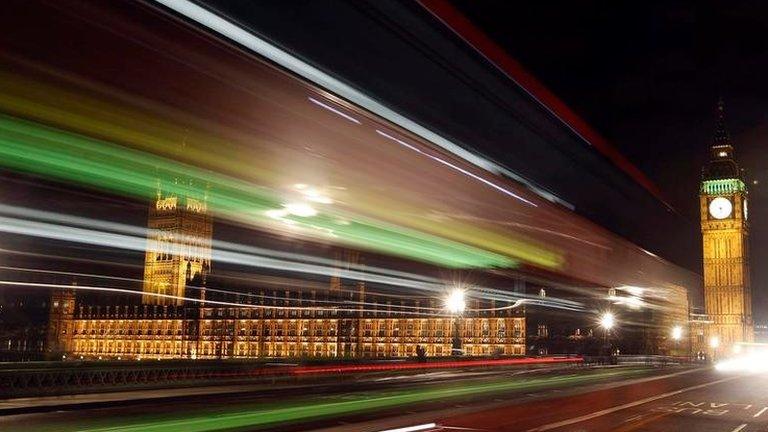
- Published27 October 2015
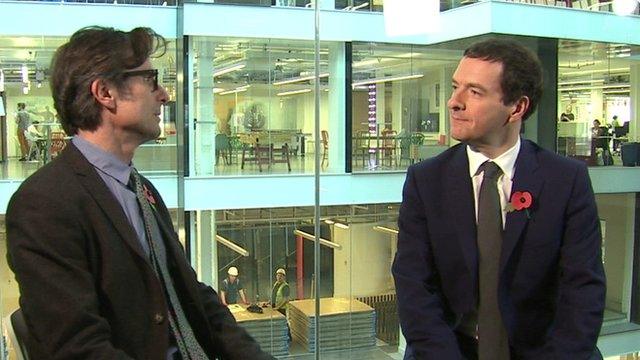
- Published27 October 2015
